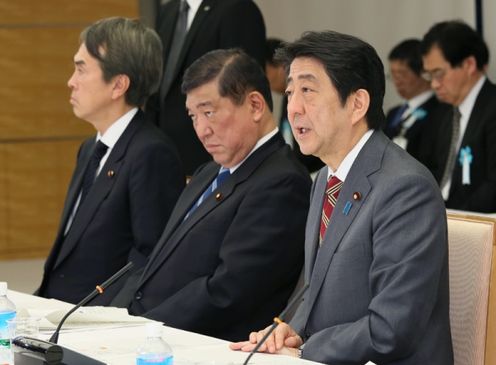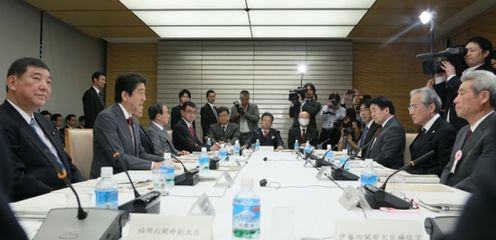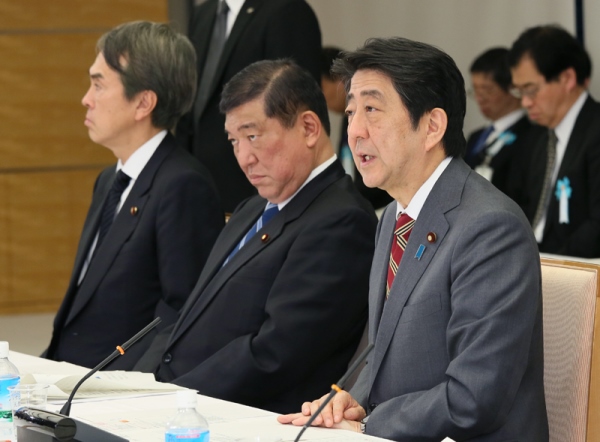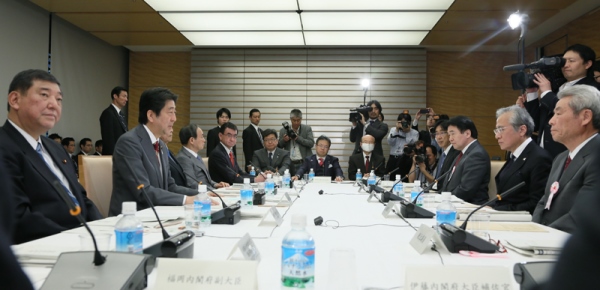Home > News > The Prime Minister in Action > April 2016 > Council on National Strategic Special Zones
The Prime Minister in Action
Council on National Strategic Special Zones
April 13, 2016

Photograph of the Prime Minister making a statement (1)

Photograph of the Prime Minister making a statement (2)
[Provisional Translation]
Prime Minister Shinzo Abe held the 21st meeting of the Council on National Strategic Special Zones at the Prime Minister's Office.
During the meeting, debate took place on certifying the special zone plan, evaluation of the six zones from the first designations, and other matters.
Based on the discussion, the Prime Minister said,
“We have now designated 10 National Strategic Special Zones, and 171 related projects have had major achievements. In regard to the development of high-rise buildings in the Tokyo Metropolis, by having the urban planning approval procedures all take place in a “one-stop” manner, and deciding the date by which procedures must be finalized, the process leading up to the approval of the plan has been reduced by several years.
The advanced medical care service proposed by Osaka University was begun only two months after the application, as much as four months shorter than usual, and by utilizing insurance in conjunction, the cost burden to patients has been reduced to only one-third.
The first farmers’ restaurant built on converted agricultural land opened last month in Niigata City, and has become so popular that it is difficult to get a reservation.
Houses in Yabu City in which sericulture used to take place have been transformed into the first ryokan (traditional Japanese inn) in Japan to be run out of an old, traditional Japanese-style home. The ryokan is operated by five young local residents, and instead of a reception area, a surveillance system has been installed.
People from start-up companies all over the country, which often have minimal human resources staff, are visiting the Fukuoka Employment Consultation Center in Fukuoka City, to gain an accurate understanding of employment rules.
Last year, for the first time ever, prefectures such as Kanagawa, Osaka, and Okinawa, held the examination for caregivers for children two times in the same year. As a result, approximately 2,400 people were certified in the second holding of the examination in these prefectures, over 10% more than the national total for the last fiscal year.
I believe that our approach of emphasizing speed to create a breakthrough, rather than spending a long time to achieve perfect results, has not been mistaken.
In order to realize Japan’s greatest postwar economy with a GDP of 600 trillion yen, we must continue to break down the regulations that are remnants of the 20th century and that lack rationality. I believe that the National Strategic Special Zones will continue to play a major role.
Taking into account the suggestions we have received today from the private-sector experts, at our next meeting we will determine our new goals for the next two years. I would like Minister Ishiba and the private-sector experts to continue to deepen discussions, so that we can establish ambitious goals. Thank you very much.”


